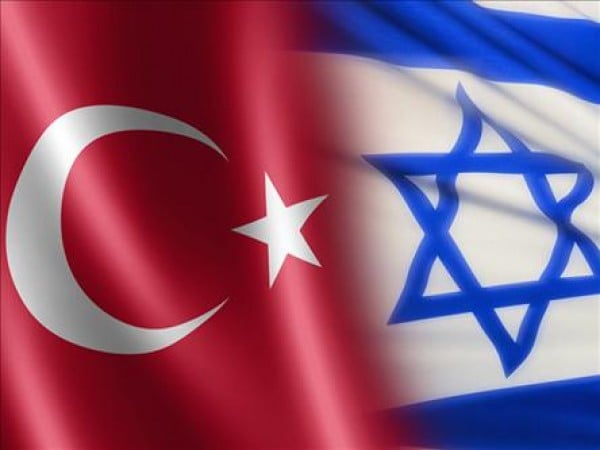The following was taken from Jspace.com. The article was written by Jspace Foreign Affairs Correspondent, Rob Lattin, who also blogs about Israeli and Middle Eastern foreign policy for Foreign Policy Blogs.

History suggests that Turkey and Israel are likely to realign due to the shift in the regional balance of power. (Photo: http://www.trt.net.tr)
With all of the turmoil and uncertainty going on in the Middle East right now, the state of Israeli-Turkish relations has largely been under-reported and under-analyzed. While the last six years have seen significant erosion in relations between the two regional powers, both militarily and politically, recent developments suggest that the relationship may move in a more positive direction.
The Israel-Turkey relationship began in 1949 and has had various periods of ups and downs typically centered on the balance of power game. Turkey has usually formulated its policies toward Israel based on national self-interest. When it believes its interests lie with the Arab/Muslim countries, it distances itself from Israel. Comparatively, when it feels its regional position is threatened by an Arab/Muslim country, it warms up to the Jewish state.
The most recent falling out began in the mid 2000’s when Turkish leadership invited Hamas officials to Ankara. But things really took an unprecedented turn for the worst following the Mavi Marmara incident and the United Nations Palmer Report. Exacerbating the situation, Turkey was riding a tidal wave of popularity and support from the Muslim and Arab nations of the region. In November 2011, the Brookings Institute’s Shibley Telhami conducted an Arab public opinion poll in which he surveyed 3,000 people from various Arab countries. Fifty percent polled thought that Turkey had played the most constructive role in the Arab Spring. Twenty-two percent polled said the leader they admired most outside of their own country was Turkish Prime Minister Recep Tayyip Erdogan (the next closest was Hezbollah’s Hassan Nasrallah with 13 percent). Belligerence toward Israel was in the Turkish national interest.
Since 2011, though, things have become more complicated. Syria, a once close ally of Turkey, has fallen into a bloody civil war putting Turkey in a bind. Despite immense international pressure, Turkey has refused to physically intervene in the conflict. This has hurt its popularity as well as its credibility as a regional power, especially given its military capabilities. There is also anxiety from the Turkish government about the possibility of Syrian refugees breaching its southeastern border. Further, Iran, Turkey’s main regional competitor, is openly supporting the Assad regime and its efforts; and in all likelihood provided Damascus with the defense system that shot down a Turkish jet in Syrian airspace a few days ago. It was announced today that Turkey will deploy antiaircraft units along its border with Syria.
Iran’s reach may also be stretching to another key nation where Turkey found much of its hype and popularity: Egypt. In one of his first addresses as the president-elect, Egyptian President Mohammad Morsi stated that he will seek to repair Egyptian-Iranian relations. Like everything in Egypt right now, how things will unfold are uncertain, but one must believe Turkish officials are concerned over Morsi’s comments.
Then there is Hamas, who Turkey has grown close with over the years. Being that President Morsi is from the Muslim Brotherhood, it is likely that Hamas, the Brotherhood’s Palestinian offshoot, will begin looking to Egypt for support it might have previously turned to Turkey for.
It is not hard to see how Turkey’s regional power base has and continues to diminish. The balance of power is shifting, and history suggests that Turkey will once again seek to ally itself with Israel. It has in some ways already begun. Turkish leaders have drastically toned down the anti-Israel rhetoric and economic ties between the two states remain strong. It would not be surprising to hear about re-established Turkish-Israeli military ties in the near future. Turkey needs Israeli intelligence, especially on Syria, even if it is unwilling to publicly admit it (there are likely already backdoor channels at work). While Israel may be weary of re-aligning itself with Turkey, and rightfully so, it does help its regional standing and credibility to have a strong Muslim ally.
A new Turkish-Israeli realignment will not bring back the relationship’s heydays of the 1990’s and early 2000’s nor be overly public. There is still the serious issue of Turkey demanding an apology from Israel over the flotilla incident, and Israel’s refusal to issue one. But, it is mad times in the Middle East and the two may be forced back together, for better or for worse.